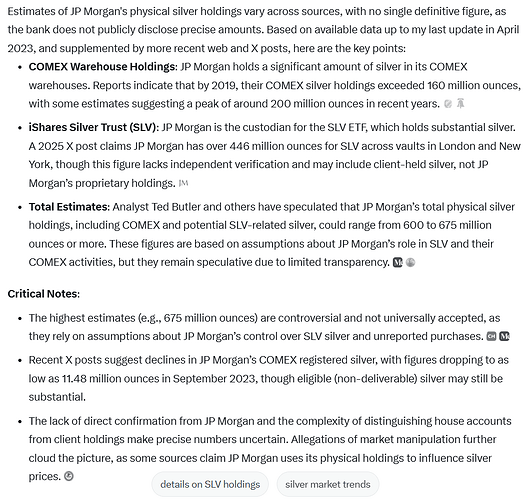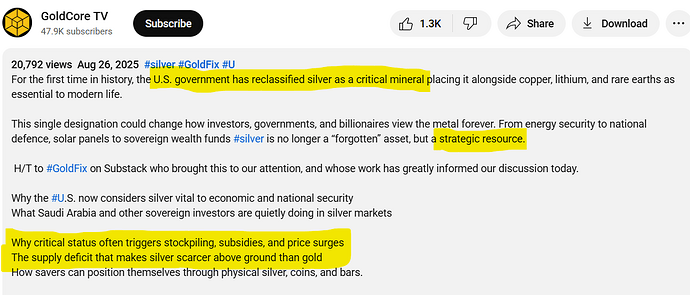Originally published at: https://peakprosperity.com/trumps-economic-and-monetary-gambits-will-either-succeed-or-wildly-fail/
Vince Lanci is someone I could speak with for days about a vast array of topics, and come away both better informed and wanting more.
In this episode, we discussed gold and silver markets, what Trump’s deeper economic aims and monetary plans really are, and our shared concerns about the raging stock market bubble.

Hey, this time has to be different, right? Yes, it does, otherwise it’s not different and stocks are going to correct/crash massively from here.
Turning to metals, Lance’s views are that Silver is poised for significant price increases due to industrial demand (e.g., solar panels) and supply constraints. You know, good old fundamentals. The big dog these days is China and its control over the silver supply chain, from mining to refining, giving it strategic and tactical advantages, potentially pushing silver prices to $42 within six months and $46–$52 within 24 months.
Further, China is promoting domestic gold ownership, drawing parallels to Reagan’s stock market deregulation in the 1980s. This includes encouraging retail investment and institutional buying, with Asian ETF demand remaining robust. Notably, China has instructed its major insurance companies to put at least 1% of their assets into gold, which is a major development.
Gold’s advance to $3,400 per ounce suggests to Vince that other commodities are deeply undervalued and due for a catch-up phase, but not before the stock bubble bursts and we sort out that mess.
Make no mistake, Trump and Bessent are making very aggressive moves to reshape the economic and monetary landscape. Will their efforts work as planned or will they crash and burn spectacularly?
With moves to almost whimsically set tariffs, and then strong-arm trading partners to recycle their surpluses into domestic US manufacturing, along with nationalizing US corporations (like the 10% stake in Intel) the future is anything but clear. How will these moves work out? What unanticipated developments will emerge? What will they think of and try next?
While all of that is churning along, AI is going to shake everything up mainly by displacing white-collar jobs, potentially increasing unemployment to 6–8% over five years. Will this be the reason for implementing Universal Basic Income (UBI)? If so, where will that money come from? Will it be funded by taxing AI companies, raising taxes on the few remaining employed workers, printing money…or will it come from the new corporatist model of taking stakes in the companies?
As I said, these are big changes. Are you prepared? Is your portfolio balanced for risk, and will it (can it) be nimble when the bubble finally bursts? If you have any questions or concerns, please fill out this simple form to schedule an appointment with Paul Kiker’s firm to discuss your specifics and develop and strategic plan to meet your needs. The best time to do this is before all heck breaks loose.
FINANCIAL DISCLAIMER. PEAK PROSPERITY, LLC, AND PEAK FINANCIAL INVESTING ARE NOT ENGAGED IN RENDERING LEGAL, TAX, OR FINANCIAL ADVICE OR SERVICES VIA THIS WEBSITE. NEITHER PEAK PROSPERITY, LLC NOR PEAK FINANCIAL INVESTING ARE FINANCIAL PLANNERS, BROKERS, OR TAX ADVISORS. Their websites are intended only to assist you in your financial education. Your personal financial situation is unique, and any information and advice obtained through this website may not be appropriate for your situation. Accordingly, before making any final decisions or implementing any financial strategy, you should consider obtaining additional information and advice from your accountant or other financial advisers who are fully aware of your individual circumstances.



